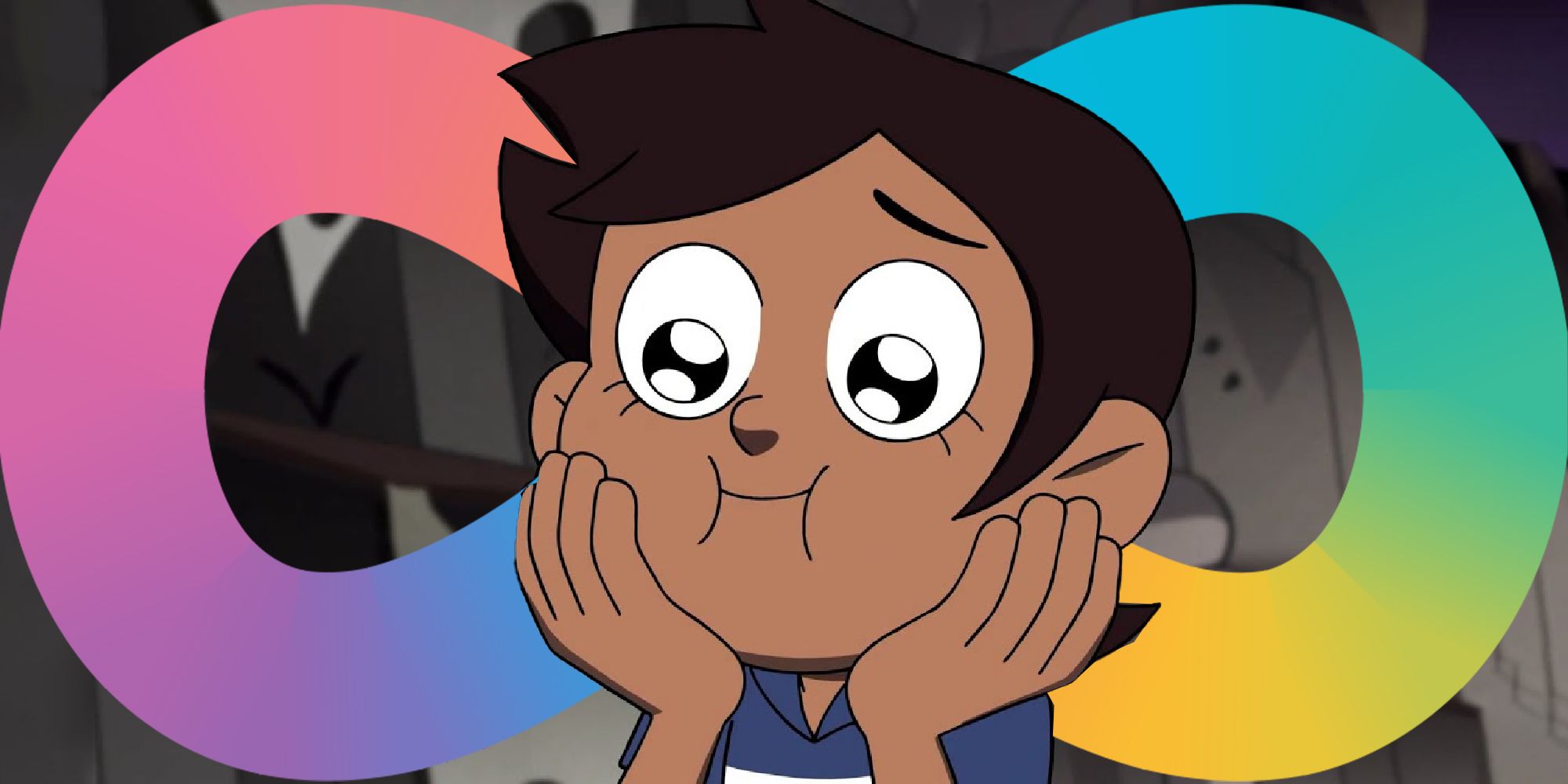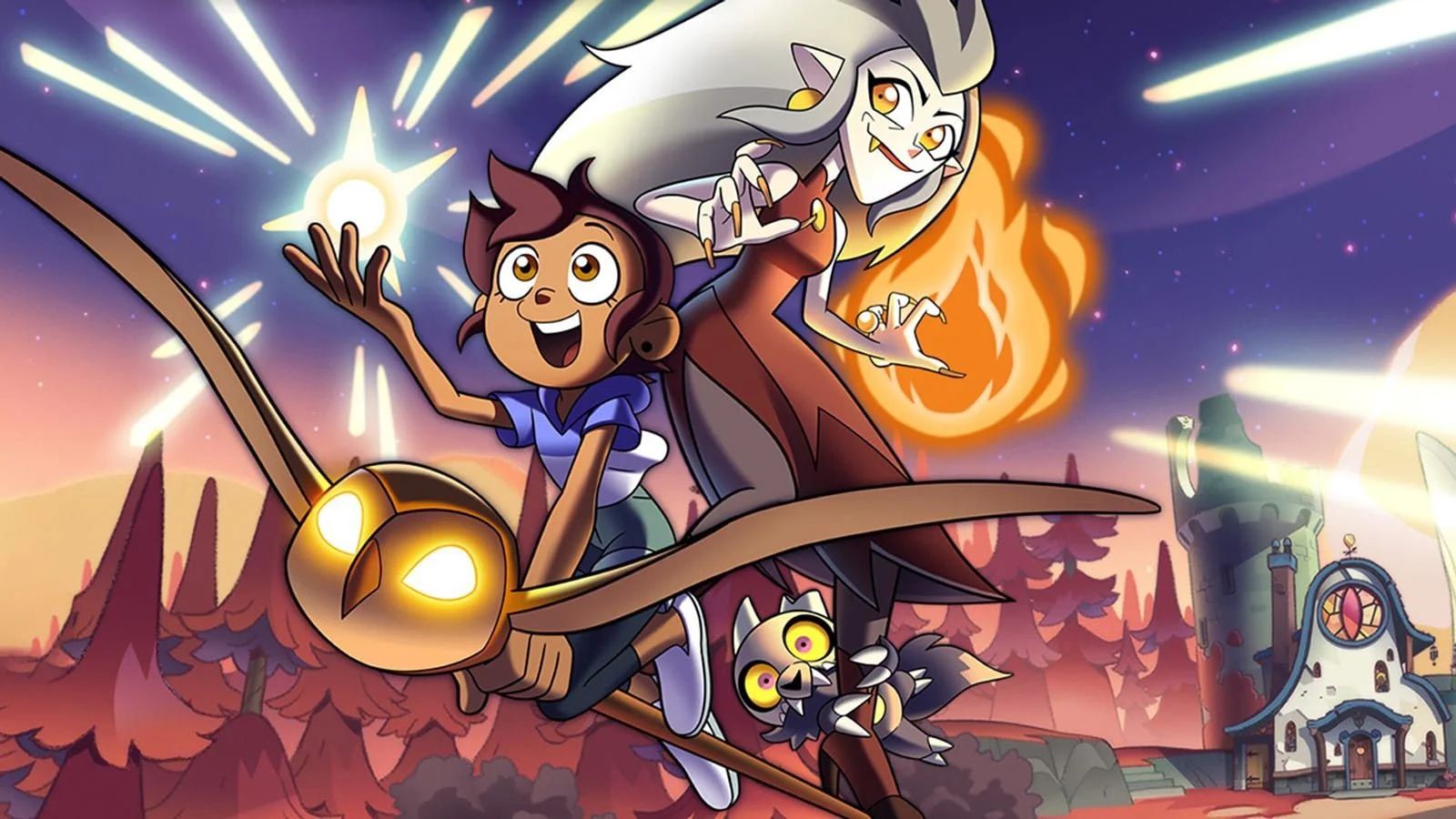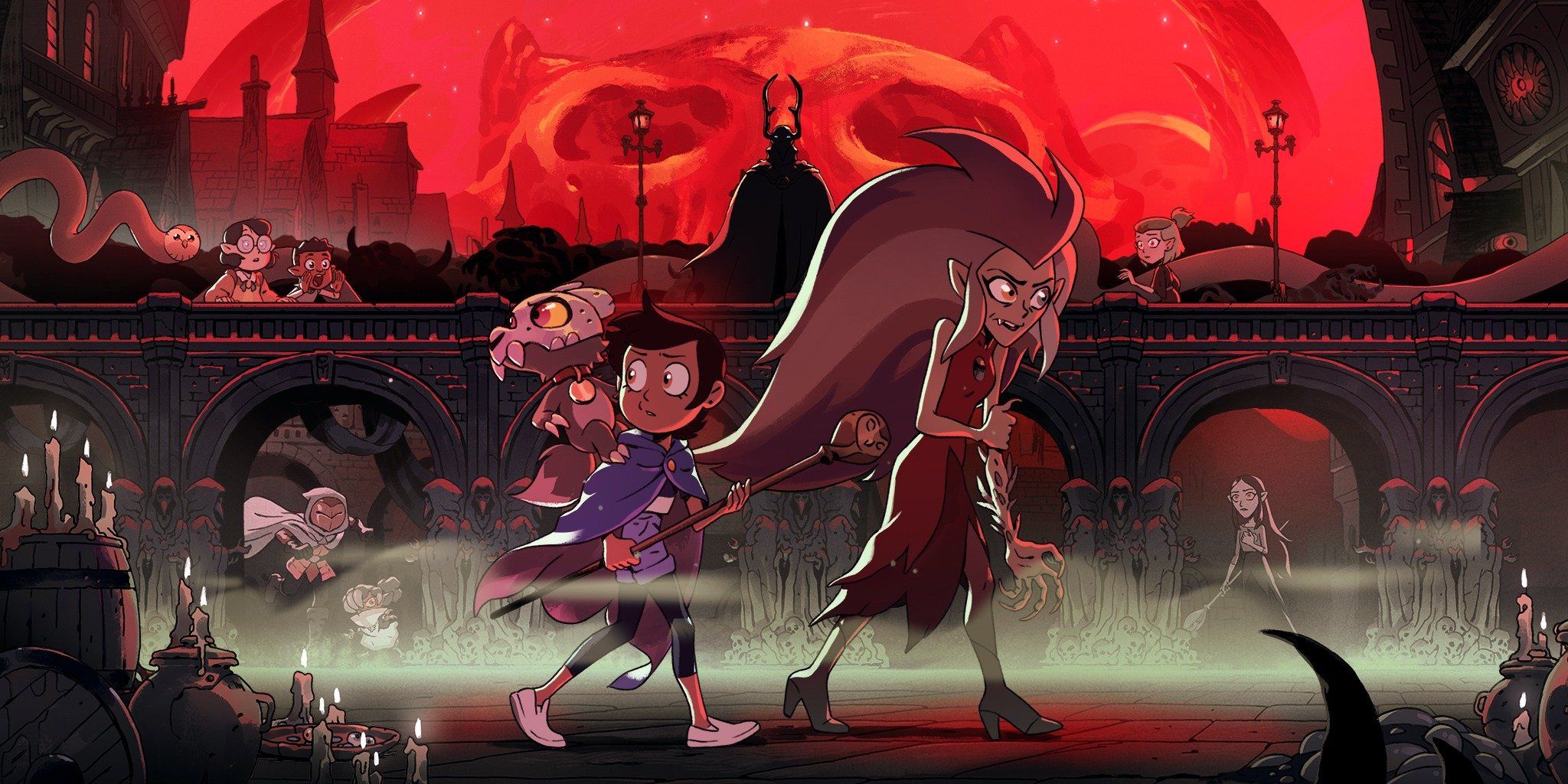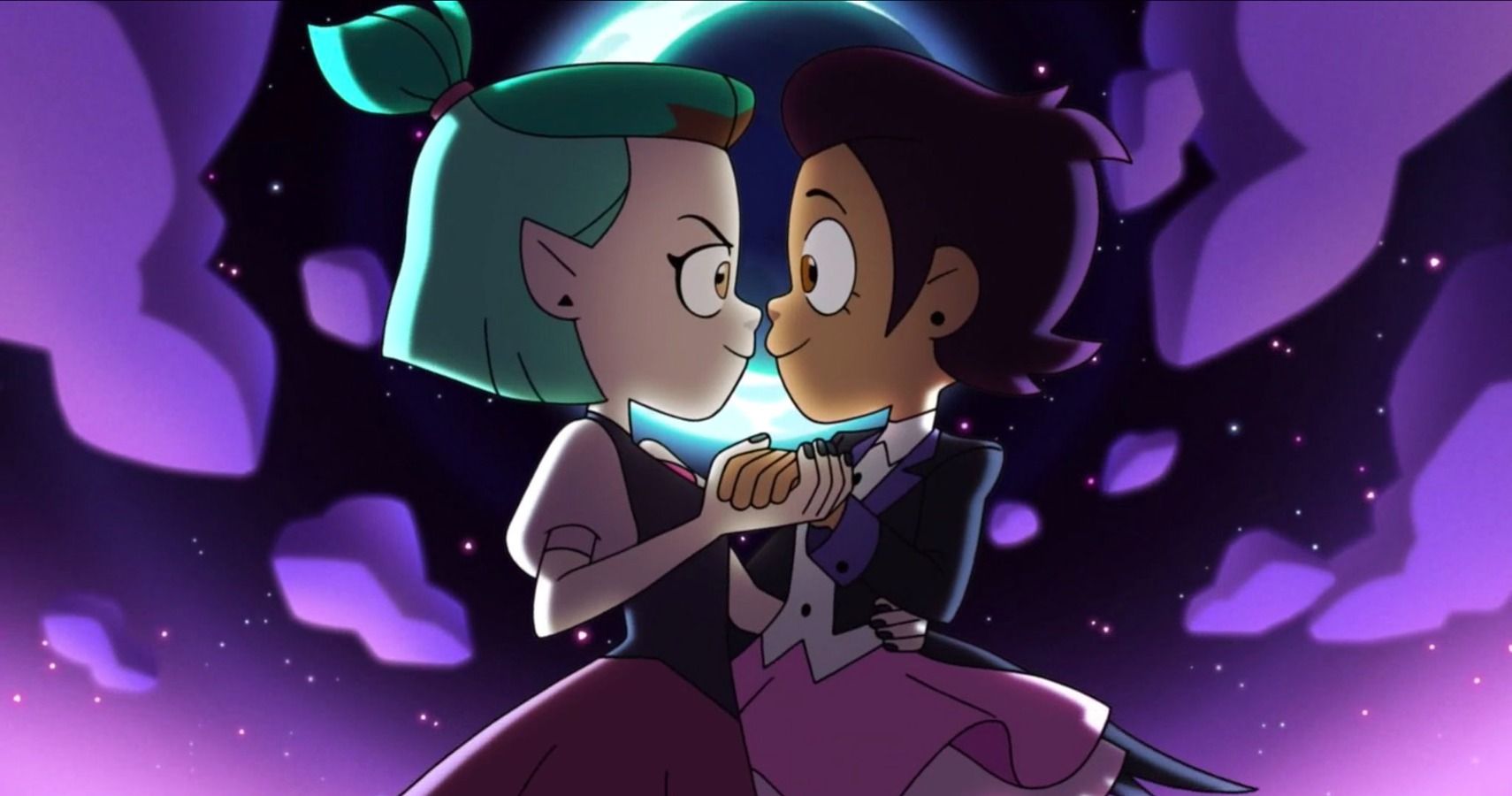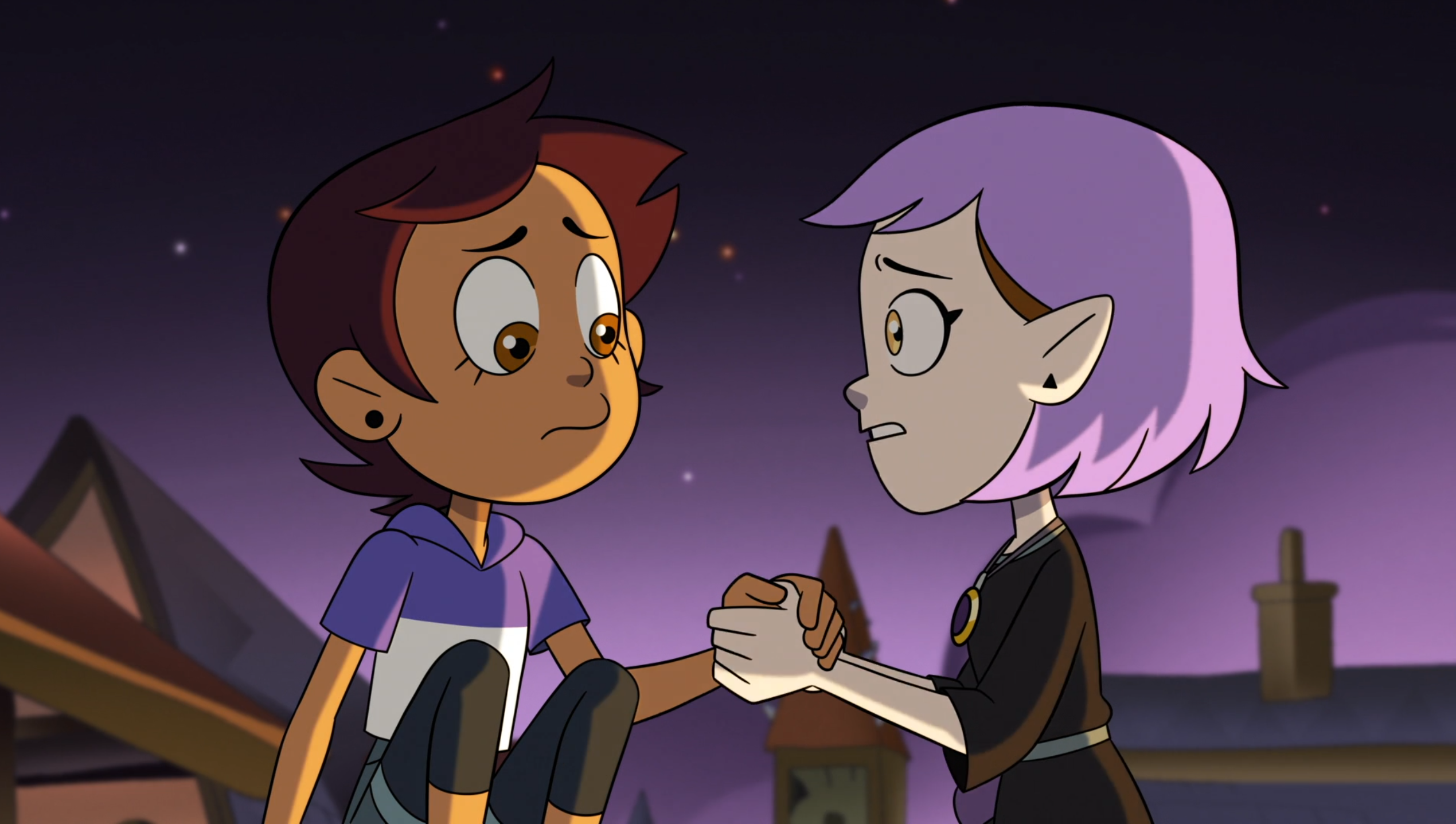The Owl House has become a bastion of representation for so many since it burst onto the scene in 2020. It depicts myriad queer characters in happy relationships and confident in their identities, providing an experience for young viewers to confide in and potentially find themselves throughout Luz Noceda’s adventures in The Boiling Isles.
While its queer themes are undeniably groundbreaking, there’s also brilliance to be found in how the show embraces people who are simply built a little different. Appearing as a guest on Cissy Jones and Sarah Nicole-Robles’ weekly recap show, creator Dana Terrace touched on how The Owl House has always aimed to focus on characters who look, feel, and act a little different to those firmly in the norm, giving them a space to shine and be who they are without societal systems seeking to constantly hold them down.
From the opening episode it’s been clear that protagonist Luz Noceda exists in a world that doesn’t necessarily agree with who she is. The first scene has her being scolded for causing trouble at school and failing to focus on her work. She much prefers to get lost in her own world, or focus on interests that aren’t forced upon her in ways that perhaps her mind just isn’t able to accommodate. Reading fantasy novels and writing fanfiction is far more interesting than fitting in or making friends, even if it means finding herself into accidental isolation and unable to push forward as the person she ultimately wants to be.
This leads to her literally being sent to a camp that seeks to place young people back inside a figurative box, having them abide by societal conventions and stop causing trouble for those around them. While it is never explicitly stated that Luz has been diagnosed with any form of mental illness, the neurodivergent coding is abundantly clear. Her obsession with magic, witches, and adorable fiction surrounding a magical realm is a hyperfixation for Luz, and one that somehow becomes a reality as she travels to The Boiling Isles and has insecurities that once held her back embraced as she grows into a better person.
But even in The Boiling Isles she is an outcast, unable to perform magic by normal means and having to make use of glyphs that have long been considered archaic. Even with these newfound obstacles she shines, finding confidence in new friends and family that encourage her to push forward and be herself in spite of whatever ails her. The Owl House could have taken the easy route and abandoned its neurodivergent coding as the fantasy world was introduced, transforming Luz from a character who clearly exhibits symptoms of ADHD and morphing her into an untouchable heroine. Instead she remained flawed, relatable, and deals with a mindset built in a way that isn’t constructed to embrace normalcy.
We see her falter when things don’t immediately go her way, or unexpected responsibilities surface such as the consequences of abandoning her mother back on Earth. Luz is never treated as a bad person, and her neurodivergent attributes aren’t once seen as a character flaw or something to be ashamed of. If anything it makes her a more lovable heroine, able to dish out compliments and find empathy in the majority of situations even if her exuberance often proves overwhelming and gets those around her in trouble. She always, always wants to do the right thing, because for the first time in her life she feels confident enough to make a difference. Young viewers with similar feelings can see themselves in Luz, even if they don’t have the official labels to nail down exactly what it is to be neurodivergent and be recognised in a way that isn’t drenched in harmful stereotypes or a lack of compassion.
Luz struggles at Hexside when she’s enrolled as a student and expected to perform at a similar level to her peers. Not content with focusing on a single form of magic and restricting herself to a style of learning that will only hold her back. Thus, she’s thrown in with a bunch of other fellow undesirables and expected to sit in isolation while the normal witchlings better themselves. To me this feels like a clear thematic exploration of how those in the real world who dare present differently or suffer from conditions outside their control are so often othered, or seen as lesser by a society that still has a long way to go when it comes to accepting and dealing with mental illnesses in productive and beneficial ways.
The Owl House is filled with characters who can represent certain conditions, while its cast also accounts for different identities, orientations, body types, ethnicities and so much more. Its diversity means something, and never once holds itself back from shouting from the rooftops about how much representation like this means to those on the other side.
Those with ADHD can often be seen as not caring about something, or almost wistful in the face of education or responsibility because their mind isn’t able to focus or comprehend the nature of certain things. People like this aren’t lesser, they aren’t troublemakers, they simply operate in a way that deviates from the status quo and is thus viewed as problematic. Luz Noceda isn’t careless, if anything she believes in things too much and wants to do her very best, but might go about in a way that is very much outside the box.
The Owl House never definitively states the neurodivergence of its characters, but it doesn’t need to. The subtext being applied by viewers and reinforced by its creators proves that this show wants to stand for something, and has helped make the world a better place for those who don’t feel heard or listened to in their own lives. Neurodivergent representation is so vitally important, helping spread awareness while also allowing those in reality who feel alone or neglected that there is a chance for them to be loved, supported, and recognised.

